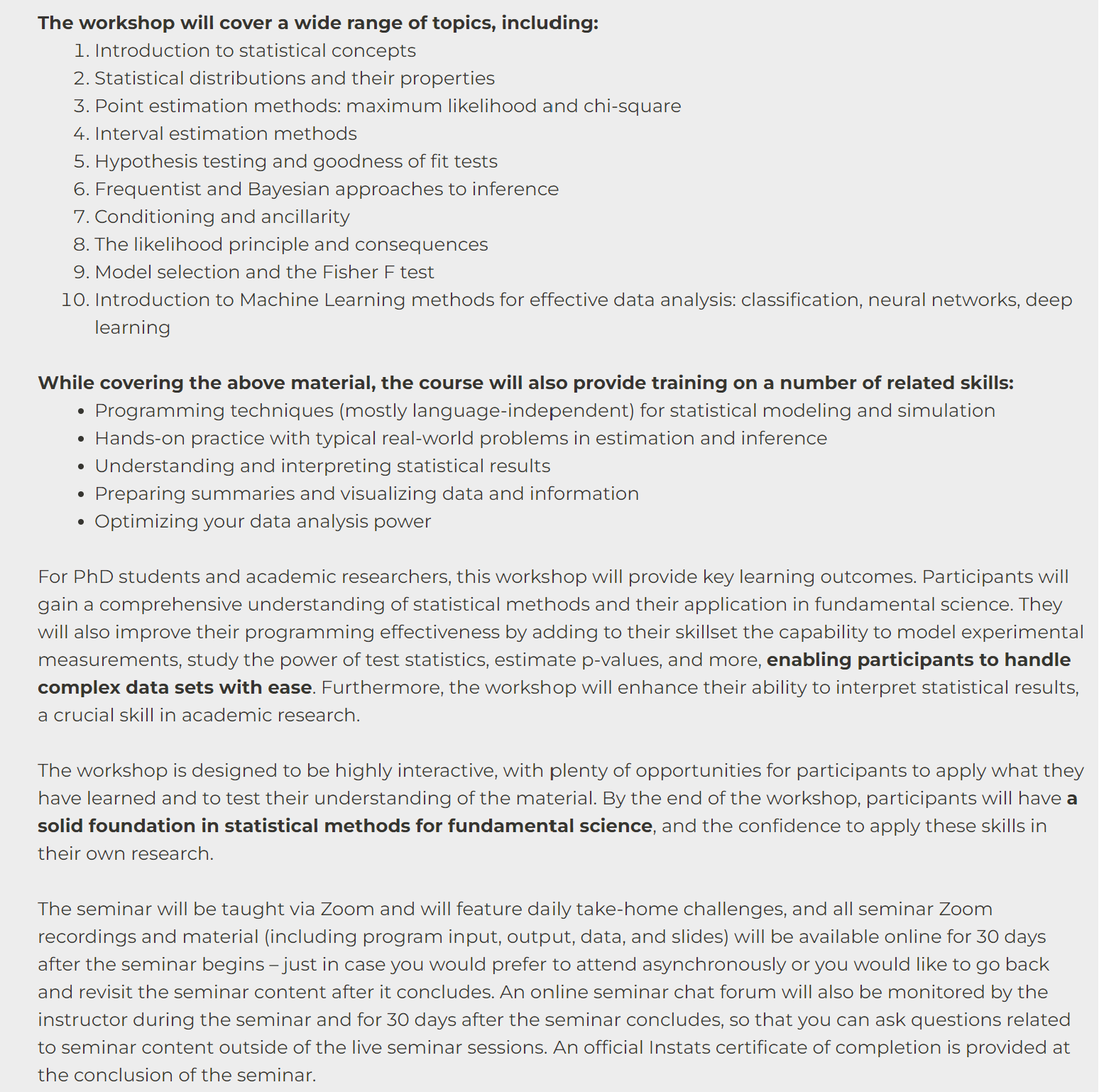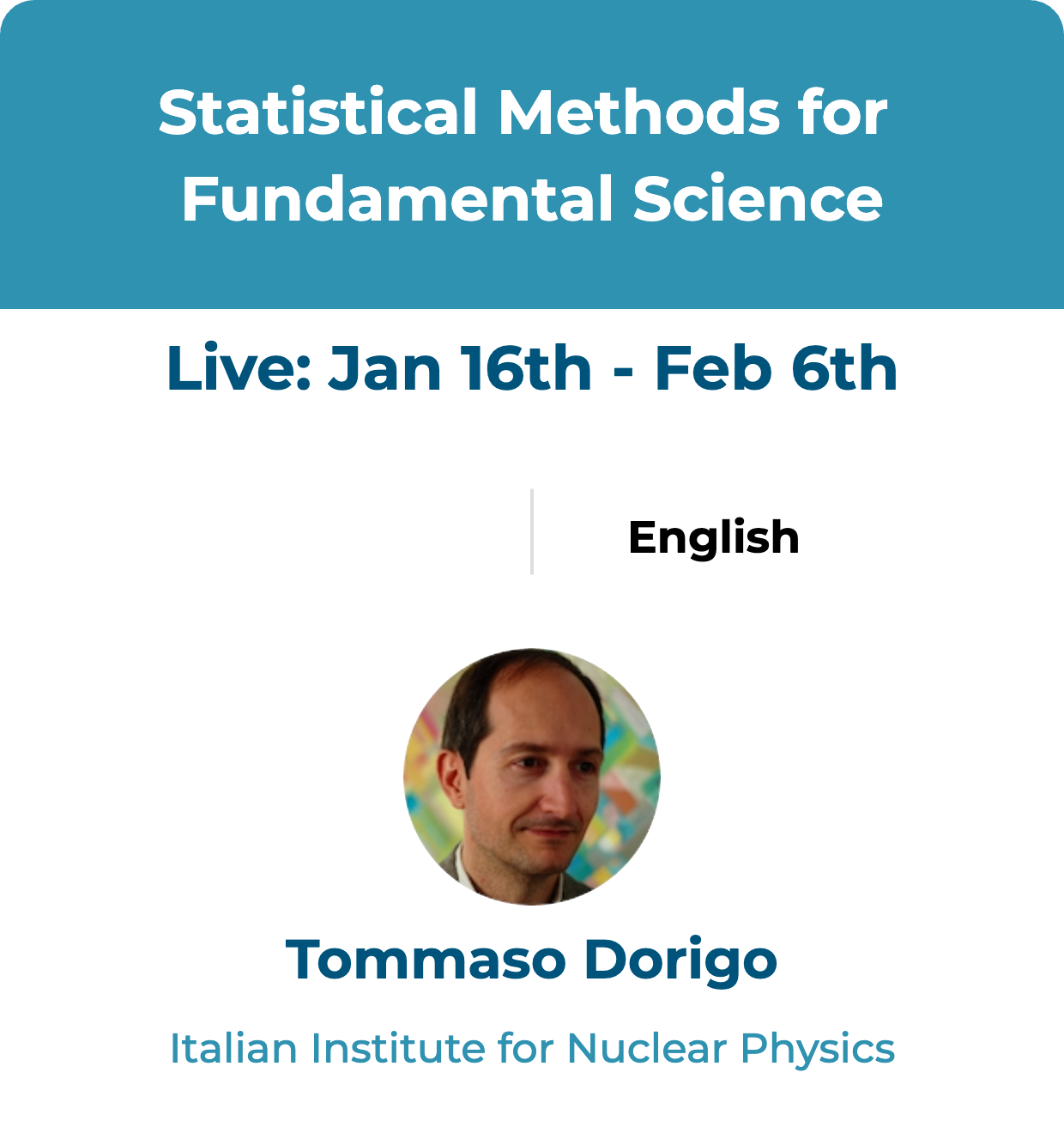I must say that I was not lucky enough, during my university training, to find an inspiring figure along the way - the most inspiring scientists that crossed my path were my thesis advisor, Dario Bisello, and the great Giorgio Bellettini, who headed the italian team in the CDF experiment. But at that point, most of my studies had already been completed. Looking back to my university years, I believe that if I had found somebody who could really pass that spark on to me, I would probably have completed my studies earlier and with better prospects.
This very blog, which will turn 20 years old next year (my gosh), is probably the best proof I can exhibit to show that I have an interest in educating youngsters on these topics. But the course I give to the Master students in Statistical Sciences in Padova is another: in the past five years I have managed to engage many of them in doing a research thesis on particle physics topics, even though they had no other training on the matter than the one they received through the course I gave, "Particle Physics: Foundations, Instruments, Methods".
Following up along that path, one thing I have decided to do is to write up my course in a book. The book will be similar to the course in its contents, and in scope too. More than teaching particle physics, what I do in the course and what I plan to do in the book is to describe how it really works, while remaining at a level which does not demand a lot of prior knowledge to really make use of it. I know very few books that come close to that concept: a good one is Jim Rohlf's "Modern Physics from alpha to Zzero", but that book leans toward providing concepts and teaching particle physics in a quantitative way as any other university course does. It is outstanding study material, but a bit too much of it. My idea, instead, is to provide an accessible explanation of everything, without requiring hard math or prior knowledge of mechanics or electrodynamics.
So yesterday I submitted a book proposal to Princeton Press. Why Princeton Press? Well, because they recently gave me a book to review, and they gave me a good impression. No other reason! These days it is not too hard to find a publisher for a book on university topics; it would be much harder to try and engage an agent to sell the book to a wide distribution publisher, and that would not be appropriate for what I have in mind anyway.
Here is an index of the proposed work:
1. The Old Quantum Theory
2. Special Relativity
3. The Wave-Particle Duality of Matter and Radiation
4. From antimatter to the Quark Model
5. The Structure of the Proton
6. The Standard Model
7. Interactions of Radiation with Matter
8. Detectors for Particle Physics
9. A Few Key Experiments
10. The Large Hadron Collider
11. The Analysis of Data
12. The Higgs Boson
13. What Lies Beyond
14. Neutrinos
15. The Universe and its Messengers
All in all, this should work out to become a 400-page book with lots of illustrations and a few inserts for more in-depth coverage of some key concepts, that can be skipped by more casual readers. It remains to be seen how I will manage to find the time to write the whole thing, but at least I moved the first step....
The other activity I have engaged in, that has to do with education, is to offer online courses with Instats. Instats is a platform offering advanced courses in a number of topics, and looked like a good match to my teaching ambitions. But in this case the topic will not be Physics, but Statistics. More precisely, Statistical analysis of data for scientists. That is another course I have been teaching in the past ten years or so (actually 11), at the PhD course in Physics here in Padova. That was initially a short set of lectures, but it recently grew larger as I added material, also in response of requests to give more extended lecturing at international PhD schools. So below you can see an advertisement banner for my Instats course. I will be online at the start of December with an 1-hour introduction to the course, and then the real thing will be offered in January.
Here is a description of the course contents:

If you are interested, please see here for more information or to enrol!






Comments